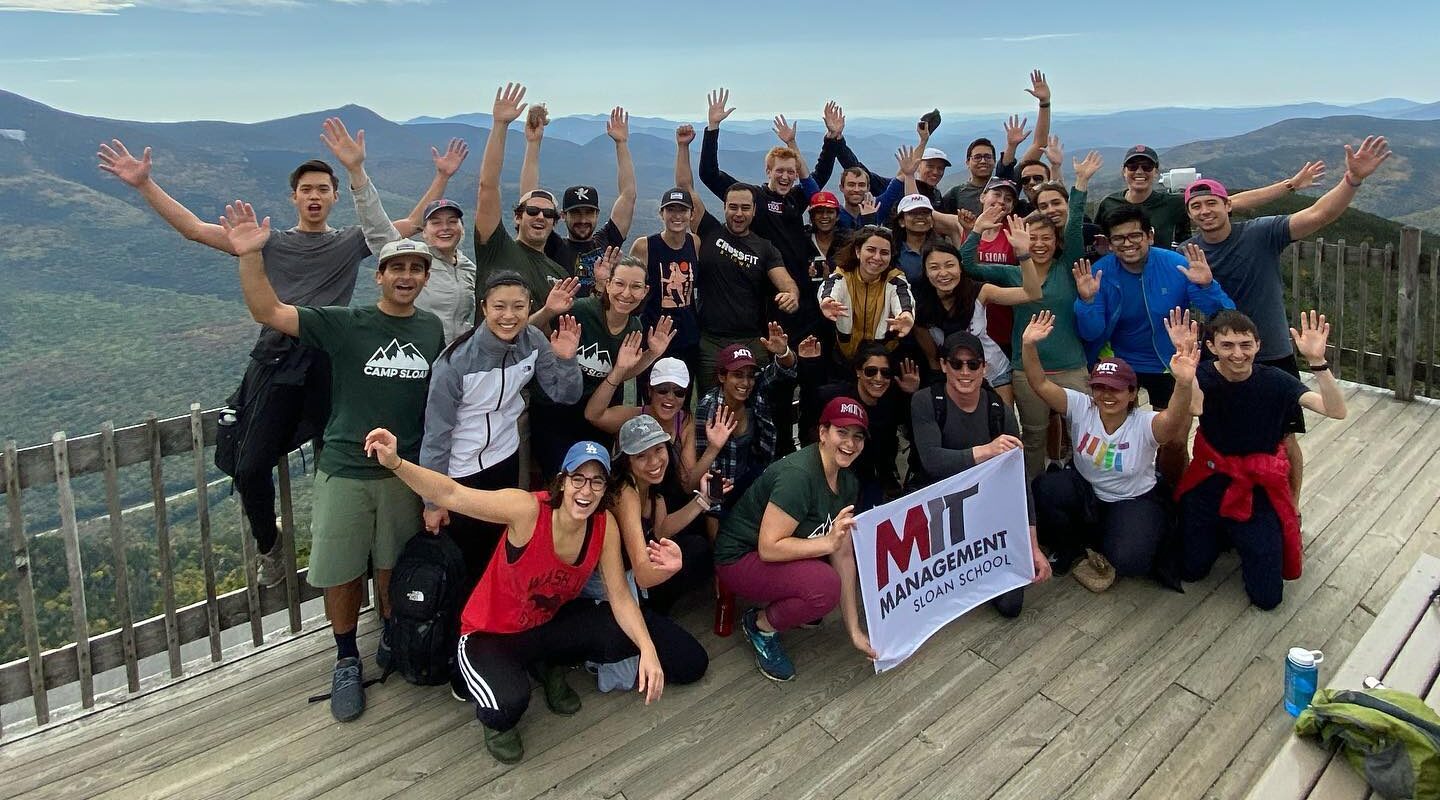UPDATE: This article was originally posted on March 8, 2021. It has been updated with new information and tips below.
Launching your own business is exciting – and daunting. You know that you have the vision and the drive to become an entrepreneur, but you may question whether you have the right knowledge, tools, connections, and funds.
Thankfully, MBA programs are excellent catalysts for entrepreneurs. Beyond the immeasurable value of their deep alumni networks, MBA programs have increasingly added entrepreneurship to their curricula, and many host incubators, startup competitions, and other built-in initiatives to help students get their business ideas off the ground.
In this post, we will discuss how entrepreneurs can use an MBA to boost their success. Then, we will go through our top picks for entrepreneurship-focused MBAs.
Entrepreneurs and the MBA
While no education is required to start a business, MBAs provide the skills and environment to scale your business and maximize your success.
Through your courses, MBA programs teach you not only how to write a business plan but also how to run and grow your company after you’ve launched it.
If you plan on hiring employees and becoming more than just your standard small business, then you need to know how different business functions like accounting, IT, and marketing work. Gaining a strong business foundation, especially for students with a non-business academic background, is important for future entrepreneurs.

Many MBA programs are adopting the case method in their classes, which provides an opportunity for you to test your decision-making and flex your skills in different business scenarios. This offers great practice before making decisions with real financial, personal, and professional implications.
Finally, MBAs provide the most optimal environment for innovating your business idea. From incubators to funding contests, you’ll be able to hone your business plan while receiving support from professors, business leaders, and former entrepreneurs themselves. In addition, your classmates are an invaluable resource for brainstorming ideas and developing partnerships. MBAs curate environments centered on innovation inside and outside of the classroom, maximizing your creativity while building the ultimate entrepreneur toolkit.
So which MBA programs are ideal for future entrepreneurial ventures? Let’s take a look at several MBAs that have curated their startup environment and spawned thousands of successful entrepreneurs.
The Best Entrepreneurship MBAs
While all top-ranked MBAs will provide great experiences for entrepreneurs, not all programs are made equal. If you’re looking for an experience tailor-made for entrepreneurs, consider these schools.
Stanford GSB
 Source: @stanfordgsb on Instagram
Source: @stanfordgsb on Instagram
Stanford GSB sits at the epicenter of global entrepreneurship, with unmatched access to top VC firms, product talent, and early adopters in Silicon Valley. Stanford GSB leads the world in startup launch outcomes—24% of its Class of 2024 become entrepreneurs, the highest among top-tier programs. Located minutes from Sand Hill Road, GSB offers unrivaled access to VC firms, angel networks, and tech founders.
Courses like “Startup Garage” and “Entrepreneurial Finance” prepare students for real-world challenges, while the Stanford Venture Studio and GSBuilds provide space, funding, and mentorship. For ambitious founders with bold visions, GSB offers not just a program but also a startup ecosystem.
Considering applying to Stanford GSB? Check out our essay guide here!
MIT Sloan
 Source: @sloanstudentlife on Instagram
Source: @sloanstudentlife on Instagram
MIT Sloan is a founder’s playground, especially for technical and product-driven entrepreneurs. Roughly 10% of grads start their own ventures post-MBA, and even more do so within a few years.
Most notably, MBA students can pursue MIT’s Entrepreneurship and Innovation Track, which focuses on launching and developing innovative technology companies and emphasizes the integration of both entrepreneurial theory and real-world application.
Additionally, Sloan’s Entrepreneurship Lab allows students to learn from founders of high-tech startups. Then, students apply their academic knowledge to the problems faced by entrepreneurial firms in a context of uncertainty, extreme time pressures, and decision-making based on limited information.
If you’re applying to MIT Sloan, our essay analysis is essential to ensure your profile stands out. Check it out here!
Harvard Business School
 Source: @harvardhbs on Instagram
Source: @harvardhbs on Instagram
HBS is another great place to explore and develop your entrepreneurial skillset. As their website says: “The HBS community is a place where students are encouraged and inspired to pursue their entrepreneurial passions. There is a vast ecosystem of resources that supports the unique needs of innovators both inside and outside the classroom.”
In fact, around 14% of the HBS Class of 2024 launched their own venture. What’s more, the school ranks first for both founders and female founders of enterprises.
In addition to a wide array of entrepreneurial courses, such as Entrepreneurship and Global Capitalism, Launching Technology Ventures, and Entrepreneurial Failure, there is the renowned Startup Bootcamp, an immersion program where you join a team to launch a new venture, Harvard iLab, and the Rock Center for Entrepreneurship.
To learn how to write an outstanding HBS essay, click here.
Berkeley Haas
 Source: @berkeleyhaas on Instagram
Source: @berkeleyhaas on Instagram
Berkeley Haas blends entrepreneurial DNA with access to Silicon Valley’s most dynamic investor networks. About 8–9% of students launch ventures during or soon after the MBA, supported by resources like the Berkeley SkyDeck accelerator, the LAUNCH Startup Accelerator, and the Berkeley Startup Cluster.
Students can pursue the Startup Semester or engage with the Haas Entrepreneurship Program, connecting with VC firms, advisors, and cross-campus talent. With a strong ethos of social innovation and founder support, Haas is ideal for students aiming to build impactful, scalable ventures.
If you’re applying to Berkeley, our essay analysis is essential to ensure your profile stands out. Check it out here!
Wharton
 Source: @whartonschool on Instagram
Source: @whartonschool on Instagram
Wharton offers one of the most comprehensive entrepreneurship ecosystems in the MBA world, combining deep academic resources with access to real capital and mentorship. Roughly 6% of the Class of 2024 pursued entrepreneurship post-MBA, and many more joined startups, accelerators, or funder-operator hybrids. The school’s Venture Lab anchors founder support through co-working space, expert coaching, a pre-accelerator program, and year-round workshops. The annual Startup Challenge awards over $150,000 in funding and attracts investors from across the East Coast.
Academically, students can major in Entrepreneurship & Innovation, and take founder-focused electives in product-market fit, startup strategy, and entrepreneurial finance. The Wharton Scale School and Entrepreneur-in-Residence program help founders move beyond ideation and toward long-term growth and sustainability. Wharton also connects MBAs with Penn Engineering and the broader university for technical collaboration.
For students interested in launching companies in fintech, B2B SaaS, digital health, or consumer, Wharton offers a full-spectrum platform, spanning early exploration to investor-backed growth.
To learn how to write outstanding Wharton essays, click here.
Babson College
 Source: @babsoncollege on Instagram
Source: @babsoncollege on Instagram
Babson is another business school famous for its entrepreneurial offerings. In fact, Babson offers an entire entrepreneurship concentration for MBA students and has incorporated entrepreneurship into its curriculum and culture for the past 50 years.
With practice-oriented courses focused on managing businesses and solving entrepreneurial solutions and the opportunity to engage in a wide range of practice-oriented cases, Babson’s MBA curriculum is ideal for any aspiring or developing entrepreneur.
Students at Babson can also engage with eight institutes and centers that translate their classroom learning into practice, including the Center for Women’s Entrepreneurial Leadership and the Institute for Social Innovation. At Babson, you can expect to live and breathe the entrepreneurial environment through the majority of your classes and extracurricular activities.
Northwestern Kellogg
 Source: @kelloggschool on Instagram
Source: @kelloggschool on Instagram
At Kellogg, MBA students have a wealth of opportunities to become outstanding entrepreneurs. The Entrepreneurship Pathway is a sequence of courses focused on strategy, finance, and marketing so that students are prepared to create their own ventures post-MBA. The pathway includes both theoretical and experiential courses, including Entrepreneurship: Building Innovation, Teams, and Cultures, Global Entrepreneurial Finance, and Social Innovation: Designing for Change.
Kellogg also offers a number of resources for those interested in building their own businesses, from funding opportunities to collaborative startup ecosystems with other universities, incubators, and innovative online communities.
Lastly, Kellogg’s Entrepreneurship + Venture Capital Club promotes entrepreneurship, venture capital, and innovation by inspiring, connecting, and empowering the full-time Kellogg community.
Applying to Kellogg? Check out our essay guide to help you land an interview!
Chicago Booth
 Photo courtesy of @chicagobooth on Instagram
Photo courtesy of @chicagobooth on Instagram
Chicago Booth has built one of the most powerful entrepreneurship engines in the MBA world. At the center is the Polsky Center for Entrepreneurship and Innovation, which provides founder coaching, venture capital connections, legal resources, and a startup ecosystem that extends across the University of Chicago. The flagship New Venture Challenge (NVC) is one of the most prestigious MBA competitions globally, with past alumni companies like Grubhub, Braintree, and Simple Mills collectively raising billions.
Nearly 5% of Booth’s Class of 2024 pursued entrepreneurship during or shortly after the MBA, while many more join high-growth startups or pursue acquisition entrepreneurship. Booth’s flexible curriculum allows students to dive into courses like “Entrepreneurial Discovery” or “Commercializing Innovation,” and pursue founder journeys from day one. For aspiring founders seeking analytical depth and proven access to funding, Booth offers both rigor and real-world traction.
To learn how to write outstanding Booth essays, click here.
ESADE
 Source: @_esade on Instagram
Source: @_esade on Instagram
ESADE is a powerhouse of resources for future founders, with many grads creating their own ventures post-MBA and an unusually high percentage of professors who teach on topics related to entrepreneurship and innovation.
The Esade Entrepreneurship Institute offers Esade students a number of opportunities to explore venture building, including their eWorks program, which offers numerous activities and support services to help students and recent graduates create new companies.
Additionally, Esade students can take advantage of lab courses offered through the Rambla of Innovation. Topics range from creating a new idea (Fusion Point) to defining a business model (eGarage and Finance Lab) and developing a startup’s media presence (Media Room).
Finally, students who want to pursue entrepreneurship MBAs can tailor their time at Esade to focus on activities such as meetings with founders of companies, events for entrepreneurs and visits during the program’s international stay component.
Considering applying to ESADE? Check out our essay guide here!
London Business School
 Source: @londonbschool on Instagram
Source: @londonbschool on Instagram
Over the past several years, LBS has steadily expanded its offerings for entrepreneurially-minded students.
Academically, LBS offers numerous resources within its Strategy and Entrepreneurship subject area, including courses like Entrepreneurship in Emerging Markets and the Entrepreneurship Lab, among many others.
Outside of the classroom, students can take part in LBS’ Entrepreneurship Summer School, a unique program that allows students to work on developing their venture with expert advice in place of a traditional summer internship. They can also focus their Global Experience on entrepreneurship-focused locations like Austin, Texas, Tel Aviv & Ramallah, or São Paulo, Brazil. Finally, LBS students can join the LBS Incubator Program to receive mentorship and funding to launch their ventures (participants have raised £200 million so far!).
To learn how to write outstanding LBS essays, click here.
Get into a Top Entrepreneurship MBA
This article covers some of the top MBA programs based on ranking and reputation, but nearly all programs offer some sort of entrepreneurship hub, startup incubator, or innovation center.
Before deciding on the best MBA program for you, it’s essential to define your own goals and consider other interests and needs. It also helps to engage with current students and MBA events to get a firsthand feel for the startup environment that each school offers. Planning and executing all of this can be overwhelming, especially when you are balancing your MBA application with work and personal life.
Luckily, our expert team here at Ellin Lolis Consulting has just the knowledge and support you need to make the right decisions, build your MBA profile, and get accepted at your dream school. That’s why our clients have a 98.9% success rate.
If you’re ready to take the next step toward your MBA and entrepreneurship dreams, apply to work with us today and learn how we can partner with you in your journey!
Real MBA Essays That Got People In
School-specific sample essays that got our clients accepted






